It was the worst of times, it was the worst of times, but at least the reading was good. Here are the Literary Hub staffers on the best books—both new and old, because why limit ourselves? Time is a flat circle, etc. etc.—that we read in 2023:
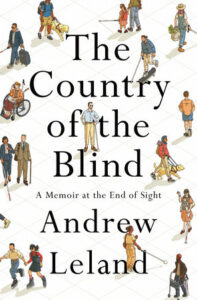
Andrew Leland, The Country of the Blind: A Memoir at the End of Sight (2023)
One of my most recommended books of the year is Andrew Leland’s investigative memoir, The Country of the Blind. Since his teenage years, when he was diagnosed with a rare eye disease, Leland has watched his vision recede around the edges and waited for the moment when he’d officially be declared “blind.” But it turns out the borders between sightedness and blindness are more porous than that, and at middle age, he determines to learn everything he can about his changing condition and a community that he feels both welcomed by and estranged from. He attends a convention of the National Federation of the Blind in Florida, travels to Colorado to become a student at the Colorado Center of the Blind, teaches himself to read braille, explores the art and activism of blind artists and activists. With wit (and a few dad jokes), he talks to his wife and son about their experiences, and as a consummate reader, he delves into the lives of his literary predecessors (here he is on Borges). A prolific podcaster, Leland knows how to take his audience on a journey as informative as it is profound. –Eliza Smith, special projects editor
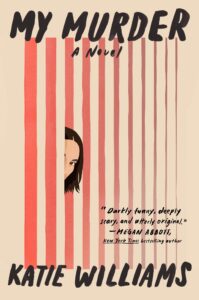
Katie Williams, My Murder (2023)
Who wouldn’t want to read a speculative sci-fi murder mystery, featuring clones, a serial killer, and a real who done it? Well, me—I scare easily. But Williams’ novel is a layered portrayal of Lou, a new mother, navigating the realities of parenthood, female friendship, and marriage. She just happens to be the last victim of serial killer Edward Early. Recently brought back to life, via cloning and a government Replication Commission, she must attend a “serial killer survivors group,” although the women here aren’t survivors at all, but other clones. Have their lives been solved by joining the world of the living? Is there something creepy about Lou’s husband? Why won’t Lou’s baby bond with her (is it because her cloned body is missing a C-section scar)? With thriller-like pacing and not-quite-this-world elements like super-advanced driverless cars and VR video games, My Murder was one of my favorite books I’ve read this year. –Emily Firetog, deputy editor
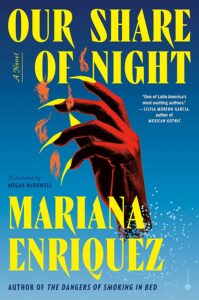
Mariana Enriquez, tr. Megan McDowell, Our Share of Night (2022)
I’ve loved everything I’ve read by Mariana Enriquez but I was unprepared for how much I would love this, her first novel translated into English. It’s an epic about family and gender and growing up and Argentinian politics, utterly human and glorious in the face of terrible darkness, and it completely consumed me for a week. I found myself living and dreaming inside this book, in the same way I felt about David Mitchell’s The Bone Clocks and some of the chunkier books of Stephen King’s canon. “And then a door closed inside the house” was the scariest sentence I read in any novel this year, but it is only one of several images that have stuck with me: a boy watching two men embrace, golden nails on a blackened clawed hand, a father driving with his son down dusty backroads, young lovers sitting together enraptured by each other and London and the world… –Drew Broussard, contributing editor
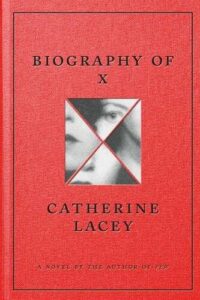
Catherine Lacey, Biography of X (2023)
This book is everything. I mean that emotionally, spiritually, literally, metaphorically, metaphysically—everything. It’s the story of a woman who married and loved and lost a great, unknowable artist. It’s the story of a widow trying to learn about and grieve her complicated wife. It’s the story of a relationship but it expands so far beyond that. X feels completely realized and real, no matter how much it expands, no matter what sharp turns it navigates. The book never loses sight of the elegy at its center, the question of whether we can ever really know someone. It’s full of depth and texture and possibility and I wanted to inject the whole thing directly into my brain. A masterpiece! –McKayla Coyle, publishing coordinator
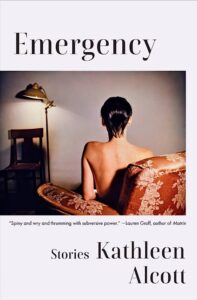
Kathleen Alcott, Emergency: Stories (2023)
Back in July, as part of our Most Anticipated Books of the Year preview, I wrote of Kathleen Alcott’s Emergency: “Each of these seven stories—about unmoored women dealing with crises of identity, creeping despair, and the psychic wounds left by corrosive men—is a small marvel: intense, cerebral, and tender.” Looking back, and having read the collection again, I think I undersold it. Emergency is, by some distance, the best short story collection I’ve read this year, and further proof of Kathleen Alcott’s remarkable aptitude for knotty psychological portraiture. –Dan Sheehan, Book Marks editor-in-chief
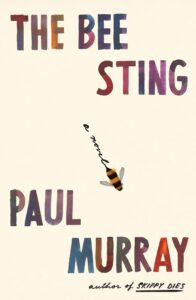
Paul Murray, The Bee Sting (2023)
I’m not really one for the Big Family Novel. I’m not against them, but it’s not a descriptor that particularly makes me pick up a book. I only say this for those in the same camp, so that they will not skip The Bee Sting. Because yes, it’s a novel about a family, but it’s more importantly a novel about four people, each of whom happens to have the same family, and each of whom has their own secrets and their own tendency to fuck up and explode whatever good things they have going, and also sometimes scrape themselves together again. So sure, it’s a little bit like a Jonathan Franzen novel—if Jonathan Franzen let himself be as weird and pointed and pessimistic and fun as I believe he secretly wants to be. Also, if he were Irish.
I loved Murray’s Skippy Dies, for its mordant wit and blackened good nature, but The Bee Sting is on another level: an extended, unbelievable magic trick of plotting and voice that ticks along like clockwork until you realize that’s actually the sound of a bomb. This was the best reading experience I had all year, and probably in the last five years. The ending is insane. You won’t be sorry. –Emily Temple, managing editor
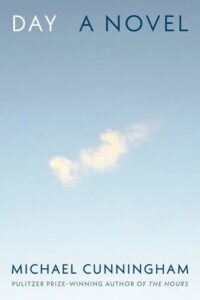
Michael Cunningham, Day (2023)
Few subjects are as daunting to me as a writer as the recent past. Now, in particular, writing about the last few years with anything like grace strikes me as almost impossible. Unsurprisingly, Michael Cunningham is up to the challenge. Much of Day takes place amid the pandemic—both its most acute stage and its most hopeful—but it’s not a Pandemic Novel. It’s a novel about love and desire and the way we construct ourselves for public consumption and how we make sense of ourselves to ourselves alone. If you’ve read Cunningham’s other work, it won’t surprise you that Day is brimming with stunning sentences, both heartrending and very funny. Cunningham dips into each member a family, as well as others in their orbit, and renders each one as achingly real—including the family’s youngest daughter, Violet. (As a lifelong hater of precocious children in literature, this is maybe the highest compliment I can pay.) Day is a novel that made me want to pay closer attention. –Jessie Gaynor, senior editor
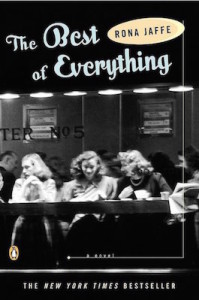
Rona Jaffe, The Best of Everything (1958)
Written in 1958 but reissued this year, let’s count it as both an old and a new book. Set in the 50s, the novel revolves around four young women as they leave college and enter that rarified, glamorous, ridiculous field: book publishing. The novel is a wonderful lengthy tome to sink into, perfect for the subway, the beach, the couch, wherever. It’s about the girls’ work life, their family life, their sex life. Being 2023, nothing is too shocking within these pages, but reading it at the time, I can only imagine it must have been an utter sensation: a gloriously frank depiction of sex, and namely, desire of women. It’s hefty, in the way that I want a good novel to be, to really spend time with these characters, watch their careers grow, their friendships evolve, their boyfriends change. Mainly it’s a treat to exist in the 1950s with them for a spell, witness the way life was different, what we’ve lost and gained in the years since, and the way life has so clearly remained the same. –Julia Hass, contributing editor
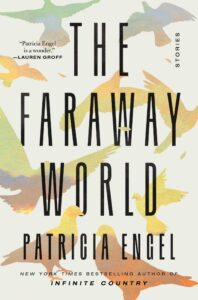
Patricia Engel, The Faraway World (2023)
I read Engel’s new story collection shortly after moving to Miami, and immediately It began changing my perspective on everything I was seeing and experiencing in my new hometown. What more can you ask of a story collection? Her work moves across the American diaspora, across registers, capturing the subtleties of everyday life and the mysteries of human longing. Not all her stories have a connection to Miami, of course, but they seem to move through a particular vision of modern life that resonates here with special force, with stories of characters that won’t soon be forgotten. –Dwyer Murphy, CrimeReads editor-in-chief
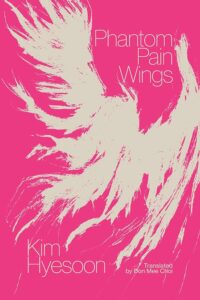
Kim Hyesoon, tr. Don Mee Choi, Phantom Pain Wings (2023)
Sometimes we get the perfect poet-translator pairing, and that’s what’s happened here with radical Korean poet Kim Hyesoon and her translator, Don Mee Choi, a radical poet in her own right. Phantom Pain Wings is a powerful yet bizarre act of ornitho-literary ventriloquism. Maybe it’s better to let the poet explain what that means for herself: “…after Daddy passed away, I called out for birds endlessly, I wanted to become a translator of bird language. Bird language that flies to places I’ve never been.” Personal favourites from this collection include “Abortion Boat” and “Girl, Your Body Has So Many Holes for Straws.” –Samuel Rutter, contributing editor
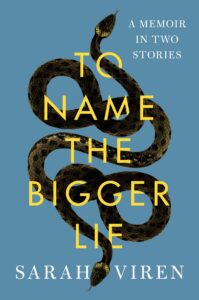
Sarah Viren, To Name the Bigger Lie: A Memoir in Two Stories (2023)
Chances are, a book based on a viral essay is not going to reproduce the same level of tension—more room to spread out isn’t always a net good. But Sarah Viren’s memoir, based on her 2020 essay for the New York Times Magazine about the false Title IX claims made against her wife, is an exception to the rule: I tore through this book greedily, as if I didn’t already know how the story ended. Viren layers that enraging, page-turning story (a cruel act of sabotage, committed in the pursuit of a coveted professorship) with an authority figure from her past: her high school philosophy teacher, in whose classroom she discovered the intellectual freedom to question notions of truth before he, too, betrayed her and the rest of her peers. It’s a book about facts and stories in an age of conspiracies, and a shining example of one of my favorite subgenres: memoirs by journalists. –Eliza Smith, special projects editor
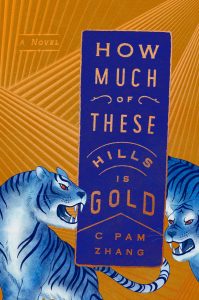
C Pam Zhang, How Much of These Hills Is Gold (2020)
How Much of These Hills Is Gold is a story about two orphaned siblings, the children of Chinese immigrants, trying to survive in the American west at the end of the gold rush. But that description is deceptive, because Zhang’s debut novel is the kind of story that rewrites itself repeatedly in its telling. Every element of this story is allowed space to grow and change over the course of the novel. Nothing has an easy answer, no relationship or character is limited to one dimension. This book opens up to the reader in a way that implies it’s struggling to be contained. It’s a book that lives far beyond its own margins, a book that doesn’t leak but floods out of its pages. –McKayla Coyle, publishing coordinator
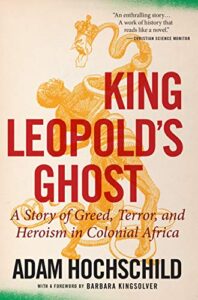
Adam Hochschild, King Leopold’s Ghost (1998)
This one has been sitting on my bookshelf for years and I finally got around to cracking the spine over the summer. Hochschild’s harrowing, enraging, meticulously researched (that’s not blurb-speak for tedious, I swear; this book is extraordinarily propulsive) 1998 account of the land grab, and subsequent genocide, orchestrated by the rapacious Belgian monarch at the close of the 19th century, as well as the heroic efforts of early human rights advocates and missionaries to shine a light on the horror, was credited with dragging back into the public discourse “the great forgetting” of the Congo atrocities. After reading King Leopold’s Ghost, you’ll want to pack up your melting furnace and hop on the first flight to Brussels. –Dan Sheehan, Book Marks editor-in-chief
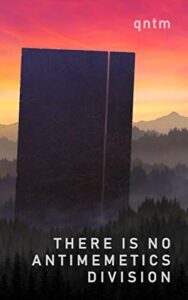
QNTM, There is No Antimemetics Division (2021)
Imagine, if you can, an entity that it can immediately erase any knowledge of its existence from the minds of anyone who encounters it. Now try to imagine that you’re one of the few people working for an organization trying to defend humanity from such an entity — but you can barely remember the gig, because of the aforementioned memory erasure. Welcome to the antimemetics division; no, this is not your first day.
An absolutely rip-roaring slice of techno-thriller slash Weird fiction, about which I knew next to nothing going in save that it was recommended to me after a recording session for an episode of the Windham-Campbell Prizes Podcast by Michael Kelleher, prize director and host of the show, who told me he’d never read anything like it. Neither had I, and it is probably the book with which I had the most fun this year. Super high-concept and tremendously well-thought-out, delivering on all its wild promises. –Drew Broussard, contributing editor

Daniel Kehlmann, tr. Ross Benjamin, Tyll (2020)
Somebody sent me this book during the fog of the early days of the pandemic, and it remained in my TBR pile until this year. It’s a bawdy picaresque centring on the life of Till Eulenspiegel, a semi-folkloric / semi-historical character possibly from the first half of the fourteenth century. In Kehlmann’s treatment (which sold some 600,000 copies in Germany) Tyll is an itinerant jester and performer whose life is brought forward to the period of the Thirty Years War, a period in which Germany’s population declined by as much as 50%. So there’s a lot of mud, sickness, superstition and violence. The chapters are non-chronological and almost standalone and there are quite a few shimmering moments of surprise and delight amongst all the death and destruction. –Samuel Rutter, contributing editor
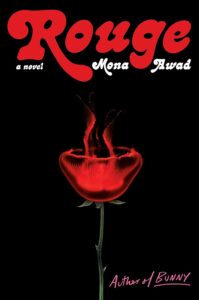
Mona Awad, Rouge (2023)
If I could sum up this book in a sentence, it would be: justice for the wicked step-queen! After all, the mother in Rouge may be exoticizing her daughter’s beauty, but she’s also not competing with it—she’s trying to save her daughter from the same toxic obsession with youth and beauty that has led to her own world narrowing, as the quest for youth replaced the will to live. This book also left me with a lot of questions, none of which I can express here because they would be full of (nonsensical) spoilers, but I can rest assured that this book takes up at least an hour of book club discussion. Awad’s writing is as sharp as it is gorgeous, and Rouge is the best kind of modern fairy tale: one with love, and longing, and sharp teeth. –Molly Odintz, CrimeReads Managing Editor
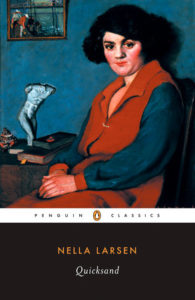
Nella Larsen, Quicksand (1928)
For this list a couple years ago, I wrote about the what-took-me-so-long experience of reading Nella Larsen’s most famous novel, Passing, for the first time. Knowing that Larsen published only two books during her short writing career (a literary injustice of the gravest kind), I put off reading her debut novel, Quicksand, but only for so long. Considered partly autobiographical, Quicksand tells the story of Helga Crane, a mixed-race woman in search of belonging, from 1920s Harlem to Copenhagen to the Deep South. In short, it is bleak, biting, and brilliant. Like Passing, Quicksand found critical acclaim if not the public reception it deserved, which is why I was very excited to learn that the Everyman’s Library published The Complete Fiction of Nella Larsen this year, which contains—in addition to Passing and Quicksand—three short stories that I will try, and presumably fail, to dole out at a reasonable pace. –Eliza Smith, special projects editor
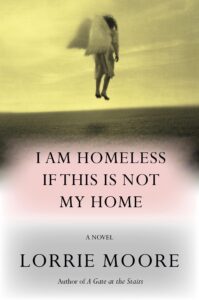
Lorrie Moore, I Am Homeless If This Is Not My Home (2023)
Lorrie Moore’s new novel is stranger than someone overly familiar with her work might expect—the undead girlfriend, alive but in the early stages of decomposition, and the Civil War-era letters interspersed throughout, for example—but IAHITINMY has all the hallmarks of her work: sentence-level fireworks, a wry humor, and poignant, emotional depth. Finn, a high school history teacher, is suspended (he thinks the moon landing was faked and has questions about various historical assassins). So he takes a road trip from Tennessee to New York to visit his brother Max, who is dying of pancreatic cancer. When he leaves Max, he gets even closer to death, learning his ex-girlfriend Lily has died by suicide. Then, in a turn that is an absolute shock but not a spoiler, Finn picks Lily up from the cemetery and takes a road trip with her and her decomposing body so she can go to a “body farm” and die, again, and donate her body to science. Is it an allegory? Is it real? It doesn’t matter. Exploring sibling love, death, and longing, it’s a novel with big questions, no answers, and it’s absolutely brilliant. –Emily Firetog, deputy editor
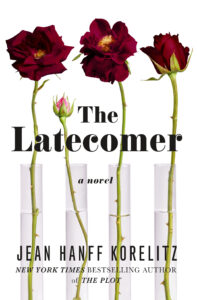
Jean Hanff Korelitz, The Latecomer (2022)
I quit a record number of books this year. I wanted nothing more than a propulsive family saga that was also beautifully written, which was, seemingly, an overtall order. Luckily, just as I thought all was lost, The Latecomer came available at my local library and restored my faith in the fat family saga. Korelitz’s novel is twisty without being tricky, gossipy yet substantial, and above all, an extremely fun read about an unforgettably unhappy family. Come for the irresistible characters, stay for the pitch-perfect elite school satire. –Jessie Gaynor, senior editor
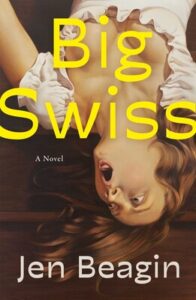
Jen Beagin, Big Swiss (2023)
The Hudson Valley is rife with weirdos and oddballs (I count myself among them) who are always good for a laugh, but they’ve maybe never been funnier than they are in Big Swiss. It’s a love story, and a great reflection on modern intimacy, but mostly it’s just a riot. The log-line alone—a woman working as a transcriptionist for a sex therapist grows increasingly infatuated with one of the patients, and then meets that patient in real life and strikes up a relationship—promises sideways delights but boy oh boy does the book deliver on the laughs. I also had the pleasure of hosting Beagin for a launch event for this book (in my side-gig at my local indie bookstore) and it somehow made an already-hilarious book even funnier: there were wigs, her partner got involved, and at least one person in the audience decidedly resembled some of the quirkier side-characters from the book. But even if you don’t live in the HV, read this one when you need a bit of relief from the horribleness of the world — you won’t find good people here, necessarily, but you will find laughter. –Drew Broussard, contributing editor
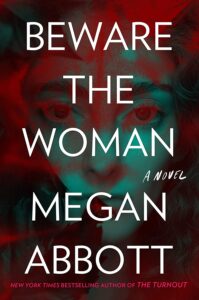
Megan Abbott, Beware the Woman (2023)
Beware the Woman is a stylish, sensual thriller that unfolds like a fever dream, with Abbott’s uncanny talents on display like never before. From the first page, we’re launched into a rich feeling of claustrophobia, even as the wilderness expands around us. A pregnant woman accompanies her new husband on a visit to his father’s remote house in Michigan’s Upper Peninsula. A creeping sense of dread warns her that all is not right here, and she soon finds herself in an increasingly vulnerable situation. Abbott handles every new suspicion and revelation with a craftsman’s care, but what really elevates this novel is the pitch-perfect atmosphere, crafted with an immediacy and a physicality that make the reading at once disorienting and utterly thrilling. –Dwyer Murphy, CrimeReads editor-in-chief
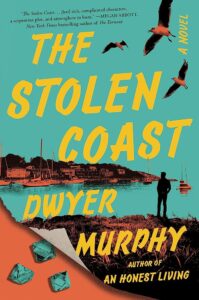
Dwyer Murphy, The Stolen Coast (2023)
This whip-smart, soulful, and gloriously atmospheric neo-noir—about a jaded fixer in a down-at-heel coastal town and the heist he cooks up with a mysterious old flame—from CrimeReads editor-in-chief Dwyer Murphy (whose Chinatown-inspired debut, An Honest Living, was one of my favorite novels of last year), reminded me of everything I love about the genre, both in literature and film. Murphy’s sentences crackle, the repartee between his shifty characters is second-to-none, and his seedy seaside setting is so evocatively conjured I could taste the salt, stale beer, and boat fumes in the air. Murphy knows the genre inside out, and his novel is peppered with pleasurable nods to the classics, but he also unfurls a wholly original mystery that kept me on the hook right to the final farewell. –Dan Sheehan, Book Marks editor-in-chief
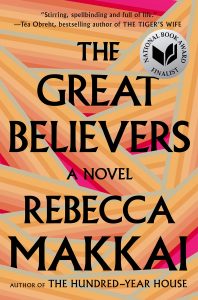
Rebecca Makkai, The Great Believers (2018)
I guess I was the last person on earth to read this, but in a way I’m glad, because it allowed me to experience something basically unheard of (for me): reading a novel that actually lived up to the hype. Makkai’s big book, which weaves together two timelines but is basically about the AIDS crisis in Chicago in the late 1980s and its impact on one group of friends—both at the beginning of the epidemic and decades later—is instantly immersive, relentlessly affecting, and a shining example of that oft-claimed but rarely achieved thing: the literary page-turner. –Emily Temple, managing editor
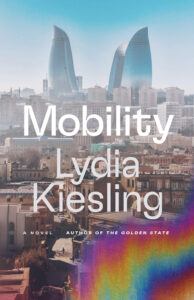
Lydia Kiesling, Mobility (2023)
What if a tragedy is comedy plus time? Mobility follows a diplomat brat, Bunny, from her teenage years in Azerbaijan where her father is on a posting to a job relating to the “energy transition” in Texas as an adult and into a future just past ours, when the fruits of our procrastination begin to ripen. As a novel, it’s just so smart: all the pieces come together for the reader with a sense of “had to be this way” at the same time as Bunny realizes the fallout from everyone’s general intransigence on climate change. What if the new world order doesn’t come down to Illuminati but to corporate information architects and mothers who stupidly poison their children’s future for a better set of heels? I’m still thinking about it. Really just a cracking read. –Janet Manley, contributing editor
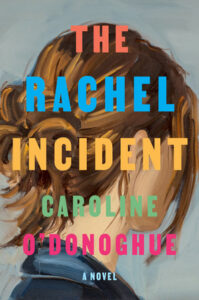
Caroline O’Donoghue, The Rachel Incident (2023)
I have a friend who, whenever she comes over, always pours over my bookshelf and asks, do you have anything “fun”? While the word sounds simple, generic even, it is actually quite a narrowing device for the broad array of books that sit on my shelves. It usually gets us down to about three books from the year, two of which are often both “fun” and also quite technically bad. That rare thing, a light, enjoyable, interesting, truly good, Fun Novel, is a treat when discovered, and this year I’d advise everyone eager for such a thing to look no further than The Rachel Incident. It has all the gossipy, compulsively readable components of a beach-read page-turner, along with being a well-written story of depth and realness. It revolves around the friendship between two Irish twenty-somethings: Rachel and her best friend James, who work together in a bookstore and together take on the joys and pains of being young, finding a place in the world, and trying to live a little differently than generations past. This, of course, includes living in an apartment where they can never stay warm, living off of crisps and pints, and experiencing romantic rejection in spades. The central romantic relationship is, interestingly, between Rachel’s older, married, male professor (who Rachel is in love with), and James. This relationship sets many other plot points in motion, and allows the reader to understand the complicated betrayals and love between the various characters. It toes the line between light and weighty, portrays real love and friendships and wrong choices while being laugh-out-loud hilarious, and well, it’s just Fun! –Julia Hass, contributing editor
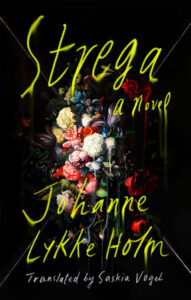
Johanne Lykke Holm, tr. Saskia Vogel, Strega (2022)
Technically Strega is about a young woman who goes to work at a nearly-abandoned hotel in the mountains of Italy with a handful of other lost young women. At one point there might be a murder. It doesn’t matter what the plot is, though, because ultimately this is a book about vibes. Strega never misses an opportunity to enhance its aesthetics. It’s like if David Lynch directed Call Me By Your Name, or if something really bad happened to Wes Anderson and he started making way darker, cooler movies. It’s full of sapphic longing and lost girlhood and truly stunning atmospheric descriptions. Strega is a decadent, shimmering, sensuous feast. –McKayla Coyle, publishing coordinator
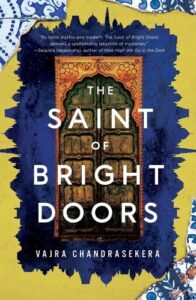
Vajra Chandrasekera, The Saint of Bright Doors (2023)
I love a good fantasy metropolis—Jeff VanderMeer’s Ambergris, China Miéville’s New Crobuzon, Renee Gladman’s Ravicka—and I’m delighted to add Vajra Chandrasekera’s Luriat to the places I’ll vacation again and again in my dreams. Even better, Chandrasekera’s novel gleefully upends fantasy convention, cementing him as a writer I’m desperate to read more from. His main character, Fetter, is introduced as a chosen one, trained from birth to kill his messianic father but Chandrasekera skips over all that predictable stuff in the first few pages and leaps ahead to Fetter in his twenties: living in the city, attending a support group for chosen ones, dating a nice man, helping new arrivals acclimate to the city’s byzantine bureaucracy. But fate is never far away and what follows is a gripping and ever-surprising exploration of faith, history, politics, identity, zealotry, art, and story—which sounds like a lot to fit into a sub-400-pg novel but somehow not only does Chandrasekera do it, but it never feels rushed or overstuffed. Bonus: I got to talk with him for an episode of Voyage into Genre and it was one of the best conversations I had this year. –Drew Broussard, contributing editor
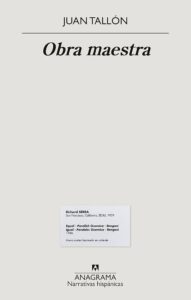
Juan Tallón, Obra maestra (2022)
This book was published in Spain in 2022 and—attention acquiring editors—is yet to be translated into English, but I had to include it as it was certainly one of the most entertaining books I read this year. It’s what the Europeans, much to the chagrin of American critics, like to call a nonfiction novel: based on true events but with fiction drizzled on top like salsa brava over patatas. So here’s the premise: in 1986, the Reina Sofía museum in Madrid acquired a large-scale work of steel by Richard Serra called Equal-Parallel/Guernica-Bengasi. It goes on show for a few years before being placed into storage in 1990, at which point things get murky. The company storing the sculpture goes bust, the government bulldozes the warehouse, and in 2006 the Ministry of Culture finally admits they’ve “lost” a sculpture that weighs 42 tons.
So far, all of this is true. What Tallón delivers is a kind of fictional oral history (in the style of Bolaño’s Savage Detectives) for an art world whodunit that remains officially unsolved. –Samuel Rutter, contributing editor
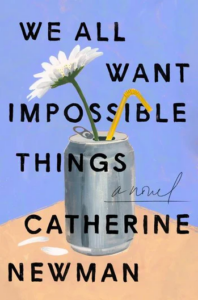
Catherine Newman, We All Want Impossible Things (2022)
I’m just a girl whose favorite book in this world is All My Puny Sorrows, so anything that even gets close to making me feel the way Miriam Toews does goes immediately in my best of the year pile. We All Want Impossible Things did exactly that, and hits every note I want from a book. It punches straight to the heart; about grief and the impossibility of letting go, of a lifelong best friendship ending too soon, about being the one left behind. To be both devastatingly heart-breaking, and joyful, life-affirming, is to achieve the impossible. It made me laugh, it made me cry: it’s a perfect book for anyone who’s ready to really feel. –Julia Hass, contributing editor
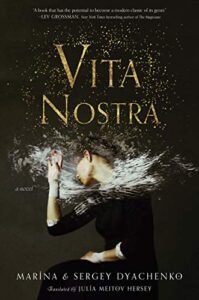
Marina and Sergey Dyachenko, tr. Julia Meitov Hersey, Vita Nostra (2018)
I mean, basically, this is a fantasy novel about the power of studying. Recommended to any and all current and former type-A students and aggressive book nerds. –Emily Temple, managing editor
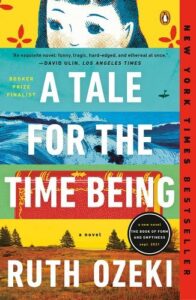
Ruth Ozeki, A Tale for the Time Being (2013)
Do you ever read a book and then for a week afterwards you’re like, “Wait, is that memory something that happened to me or something that happened in the book?” A Tale for the Time Being did that to me. I felt this novel so deeply and viscerally that I sometimes lost track of where I ended and where the Ozeki’s story began. This book is split between two characters and two timelines: Nao, a girl in Tokyo who has decided to take her own life, and Ruth, a novelist and meta character who is and is not Ruth Ozeki herself. The two characters are connected by Nao’s diary, which washes up on Ruth’s shore in Canada after the 2011 tsunami. This novel is a philosophical text but it’s also a speculative time travel story populated by mysterious crows and Hello Kitty lunch boxes and the Pacific ocean. I don’t know, just read it! I can’t explain it because it’s so much bigger than I am! (Content note that quite a lot of the story centers on the theme of suicide). –McKayla Coyle, publishing coordinator
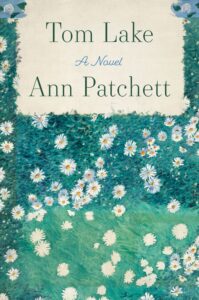
Ann Patchett, Tom Lake (2023)
Patchett’s writing is simply incomparable in the modern landscape. Nobody writes about families with such nuance, insight, or surprise. In Tom Lake, she brings another inter-generational saga to life with impossibly intricate and moving set pieces that quickly reveal her characters in all their complexity and contradiction. While I was reading the novel, I found I was spending my spare time thinking about her characters and their fictional dilemmas as if they were my own family. I was consumed with their dramas and felt utterly, impossibly transported. –Dwyer Murphy, CrimeReads editor-in-chief
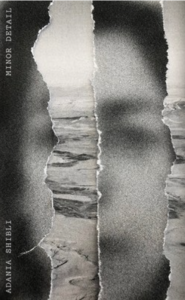
Adania Shibli, tr. Elisabeth Jaquette, Minor Detail (2020)
National Book Award finalist Adania Shibli’s slim, devastating novella—about the 1949 rape and murder of a Palestinian girl Negev desert by Israeli soldiers, and the attempt by a young woman living under occupation in Ramallah in the present day to uncover the truth—was at the center of a firestorm back in October when the Frankfurt Book Fair cancelled an award ceremony for Shibli and Minor Detail, citing the Israel-Hamas war as the reason. The book itself is a magnificent achievement; an acutely observed and quietly brutal meditation on colonial violence and the debilitating psychic toll of life under occupation. It shook me to my core. –Dan Sheehan, Book Marks editor-in-chief
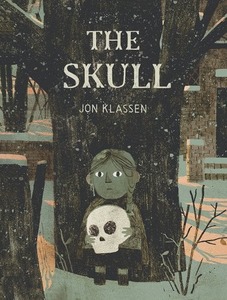
Jon Klassen, The Skull (2023)
In the depths of spring 2020, I could only read John le Carré novels and Jon Klassen books. His illustrations are so deeply my jam, somehow soothing and funny and a little eerie too, and The Skull opens a whole new realm of work that I hope he’ll continue: retellings of folklore. I loved this book so much that I got a tattoo of the titular skull on my forearm, a little memento mori that manages to be joyful and silly while also poignant and honest. We’re all going to die someday, so we might as well have a nice time in the meantime, you know? –Drew Broussard, contributing editor
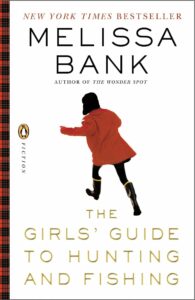
Melissa Banks, The Girls’ Guide to Hunting and Fishing (1999)
Does Girls’ Guide really need to be on another Lit Hub list? Sure, fine, if you know you know, but this is for those who don’t: pick up this book immediately, you won’t be sorry. And it’s the perfect time too, for Viking is reissuing the book as a Penguin Classic 25th Anniversary Edition next summer. Twenty-five years since the character of Jane Rosenthal was created, every bit as alive and witty, as convivial and charming company that any reader could hope for. Girls Guide is described as interconnected short stories, though all but one piece is about Jane, growing up and into herself. Jane as a young girl watching her brother fall in love for the first time, Jane moving to New York, working in publishing, Jane having a relationship with a man twice her age, Jane’s parents growing older, Jane growing older. I deeply loved having Jane’s voice in my ear and I missed her as soon as I reached the last page. Melissa Bank passed away this year, a loss for us all, but what a gift she left behind: a girl as droll, and searching, and recognizable and real as Jane, here for you whenever you choose to pick up this amaranthine gem, a truly lasting collection. –Julia Hass, contributing editor
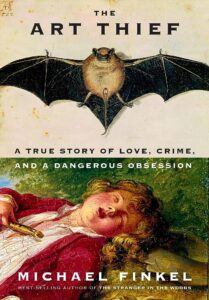
Michael Finkel, The Art Thief (2023)
This is the beautifully detailed story of Stéphane Breitwieser, the most prolific and brazen art thief ever, who, alongside his girlfriend Anna-Katherine, carried out more than 200 heists, stealing more than 300 objects, from tiny works to wall-sized tapestries, from museum and cathedrals all over Europe. Breitwieser never stole for money, refusing to sell his treasures and instead storing them in his mother’s attic like a collector. Finkel’s account is meticulously researched, with interviews with Breitwieser who not only implicates himself but revels in dozens of capers with incredible detail. It’s a speedy, fun read that’s a mix of art history, true crime, and portrait of a very peculiar psychology. –Emily Firetog, deputy editor
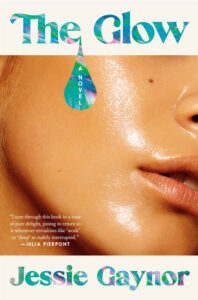
Jessie Gaynor, The Glow (2023)
Wellness often comes with a coating of knowingness–quippy packaging that gives cover to our dropping more money every year into glorified Vaseline products and the commoditization of charismatic weirdos in pursuit of self-care, self-actualization, self-escape. The best way to take on wellness culture then, is with satire as sharp as a facial extraction at the mall. Jessie Gaynor’s The Glow is just such a riff on the Goopified world, and begins with Jane, a down-and-out PR gal who out of financial desperation attempts to turn a beautiful yoga girlie with smelly pits into the next Gwyneth.
As Jane progresses from merely branding the Kool-Aid to drinking and bathing in it, we get raucous scenes of OM, a sweaty portrait of cult-building, and a beautifully complex story about how and why we end up enmeshed in delusions of betterment. Gaynor–one of Lit Hub’s beloved senior pens–writes a comedy with heart. Eat with Cheetos. –Janet Manley, contributing editor
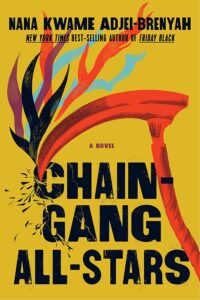
Nana Kwame Adjei-Brenyah, Chain Gang All-Stars (2023)
If I wasn’t already a prison abolitionist before reading this, this book would’ve made me one. Adjei-Brenyah continues in the near-future vein of his spectacular and unsettling short-fiction debut Friday Black by delivering an America that has turned its prison system into a gladiatorial entertainment machine. It hits hard, and unforgivingly: we follow prisoners and partners Loretta Thurwar and Hamara Stacker as they fight their way through these death matches, trying to hold onto their humanity and to each other — but Adjei-Brenyah lets us see glimpses into the lives of civilians, other prisoners, and even the suits running the deathmatch operation to deliver a polyphonic look at a frankly all-too-plausible America. You think people wouldn’t tune in for televised death matches? Just look at the number gruesome injuries have happened in just this current season of the NFL. You think people would have a hard time seeing fellow humans stripped of their humanity? Just listen to the rhetoric from Trump supporters, or those who offer justification for the genocides happening in Palestine, Myanmar, Sudan, Ethiopia. Adjei-Brenyah’s book reminds you that this is all much, much closer than you think.
Oh and the ending made me genuinely gasp and then burst into tears, a rarity in my reading and a moment that still gives me chills just thinking about it. This book will remind you just how important it is to feel and to be human, in the face of impossible awfulness. –Drew Broussard, contributing editor



